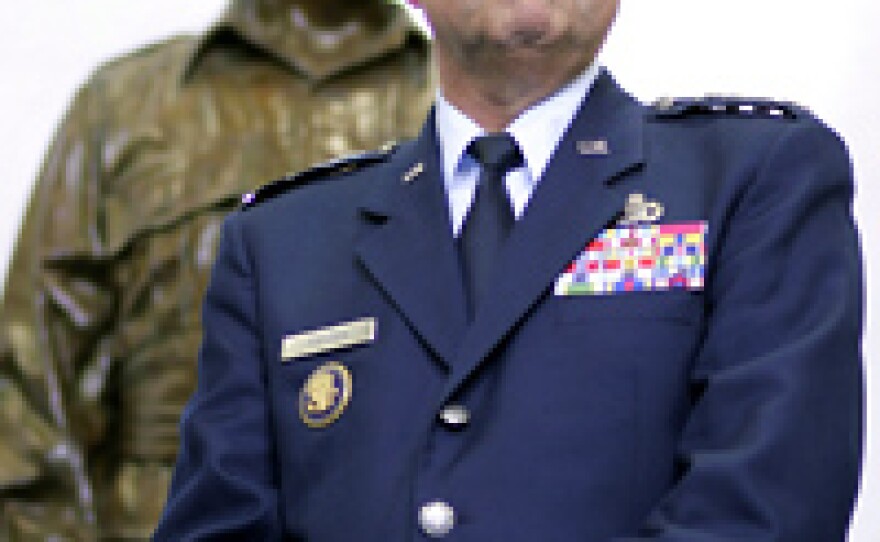
In the next few weeks, the Senate will hold confirmation hearings for Dell Dailey, who has been named to the top counterterrorism job at the State Department. Dailey, an Army lieutenant general, is the latest in a line of Defense officials who've been selected for the nation's senior intelligence posts.
Until recently, positions ranging from the director of the CIA to the chief of counterterrorism were occupied by civilians. The emerging pattern is raising questions about the wisdom of having military officials running nearly all of the large spy agencies in the United States.
"These are people who know how to lead, from their military service," says Richard Kohn, a military historian at the University of North Carolina. "And they have something else, and that's a certain decisiveness."
Still, Kohn, who is teaching this year at the U.S. Army War College, says that on balance, it's a bad idea to overpopulate the nation's intelligence agencies with military officers.
Often, Kohn says, the officers worked in war-time conditions. "And thus," he says, "the emphasis can be far too tactical to lead the larger intelligence community."
That community, Kohn argues, shouldn't allow military priorities to trump broader, strategic ones — whether they be economic, political, or environmental.
Rep. Pete Hoekstra, who chairs the House Intelligence Committee, says he has nothing personal against any of these men.
"But when you do have the clean sweep of the military controlling every significant position in the intelligence community," Hoekstra says, "you're going to see the intelligence world through the glasses of the military. And that is a problem."
Pat Lang disagrees. The former head of human intelligence at the Pentagon's Defense Intelligence Agency says that by the time people climb to senior officer ranks, they've been trained in tactical intelligence collection — but they're also exposed to broad strategic planning.
"The idea that they just think differently and want to think all the time about narrow issues of military tactics and things like this, is just not supported by the facts in my experience," Lang says. "I just don't think that's a real argument."
Meanwhile, there is another key position yet to be filled — deputy director of National Intelligence. That person will report directly to Adm. McConnell. And because it's unlikely both jobs would go to military veterans, it may well be a civilian.
Copyright 2022 NPR. To see more, visit https://www.npr.org. 9(MDAzMjM2NDYzMDEyMzc1Njk5NjAxNzY3OQ001))







